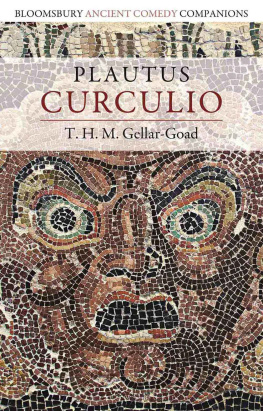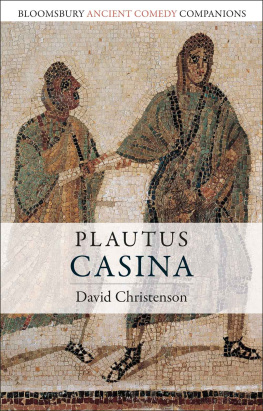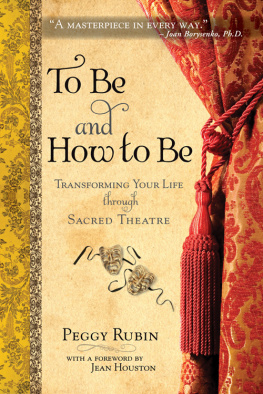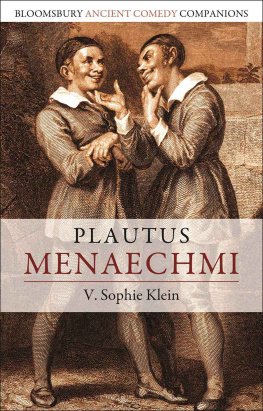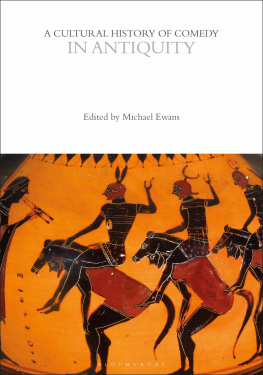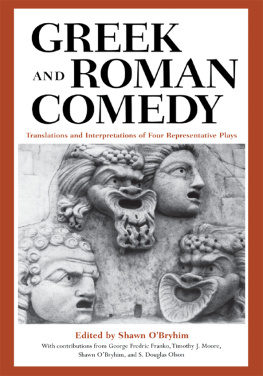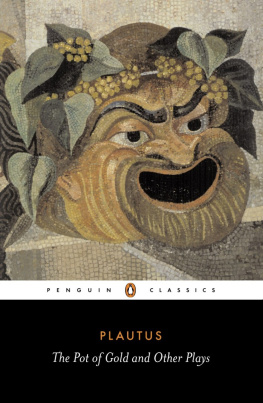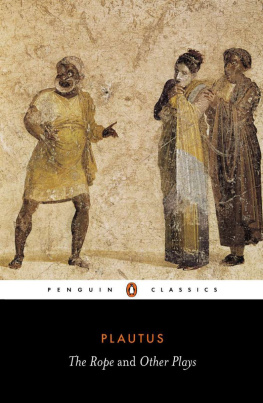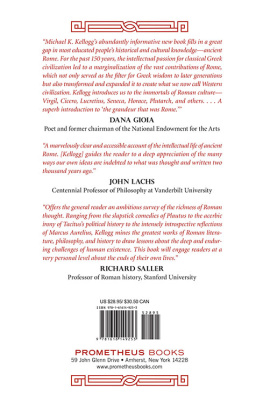
Plautus: Curculio
for Mom and my students,
the two audiences I kept in mind
with each word I wrote
BLOOMSBURY ANCIENT COMEDY COMPANIONS
Series editors: C. W. Marshall & Niall W. Slater
The Bloomsbury Ancient Comedy Companions present accessible introductions to the surviving comedies from Greece and Rome. Each volume provides an overview of the plays themes and situates it in its historical and literary contexts, recognizing that each play was intended in the first instance for performance. Volumes will be helpful for students and scholars, providing an overview of previous scholarship and offering new interpretations of ancient comedy.
Aristophanes: Frogs, C. W. Marshall
Aristophanes: Peace, Ian C. Storey
Menander: Samia, Matthew Wright
Plautus: Casina, David Christenson
Terence: Andria, Sander M. Goldberg

Contents
Figures
A nut weevil.
Remains of the sanctuary of Asklepios in Epidauros, Greece.
In this section of a fresco in the Tomb of the Diver in Paestum, Italy, from approximately 470 BCE , a partier (left) plays the auloi, the Greek analogue to the Roman tibiae, for his erotic companion.
Masks at a performance of a scene from Plautus Poenulus by members of Compagnia Fondamenta Teatro e Teatri, in Sarsina, Plautus hometown.
The circuit of exchange of Plautus Curculio, as originally planned by Therapontigonus.
The circuit of exchange of Plautus Curculio, if Therapontigonus were the ultimate object of the deception plot.
The circuit of exchange of Plautus Curculio, as it actually happens.
The stage layout of Plautus Curculio.
A diagram of character movement of the end of Plautus Curculio (lines 533729).
The Roman Forum, mid-180s BCE . Sites not mentioned by the Choragus are in brackets.
The Roman Forum, mid-180s BCE , with the Choragus itinerary mapped on.
The theater of Epidaurus.
Footnote breaking the fourth wall in the October 2019 Czech production of Curculio aneb Darmojed.
Tables
Key genres of Roman drama during the time of Plautus.
The principal stock types of Plautine comedy.
The musical structure of Plautus Curculio.
The musical structure of the canticum of Plautus Curculio.
The itinerary of the Choragus tour of the Forum Romanum in Plautus Curculio.
Top billing goes to C. W. Marshall and Niall W. Slater, for inviting me to write this book and making it better by leaps and bounds. Sharon L. James introduced me to Plautus and made me the comedy scholar I am today. Timothy J. Moore gave me the courage and tools to dive into Plautus music and meter. I gained so much from students in my Greek & Roman Comedy course at Wake Forest University, Winston-Salem, North Carolina: insights, observations, questions, and inspiration over six iterations of the course, starting in 2013. I am especially thankful for the adaptors and performers of Plautus Curculio in 2019: Brigid Berndt, Jackson Blodgett, Anna Campbell, and Cristian DeSimone. I couldnt have done any of this without the support, encouragement, and put-together-ness of Julie Pechanek. My mom, Sandra Edwards Gellar, read every word in drafts and gave invaluable feedback. Thanks also to Alice Wright, Gamey Leather, Lily Mac Mahon, Roza I. M. El-Eini, Merv Honeywood and especially Serena S. Witzke. My husband, Jake Gellar-Goad, offered his support throughout the writing, and his patience with the processeven knowing another book means I get another Classics tattoo. The bulk of the manuscript was written on ancestral lands of the Catawba, Keyauwee, Sappony, and Tutelo peoples.
I greatly appreciate Mathias Hanses, who shared a pre-publication version of his work on the Choragus with me; both he and Katrin Hanses generously allowed me to use their reconstruction of the Roman Forum in Chapter 7. I could not have completed Chapter 9 without the resources of the Archive of Performances of Greek and Roman Drama, housed at Oxford University, and the assistance of Zo Jennings there.
I received support from the Dingledine International Faculty Fund of Wake Forest University to trace the path of the Choragus speech in the Forum Romanum in Rome. The universitys Archie Fund for the Arts and Humanities allowed me site visits to theaters active in Sicily around the time of Plautus. The universitys Nathan and Julie Hatch Research Grant for Academic Excellence sent me to the Summer Research Institute of Harris Manchester College at Oxford University. I owe thanks to Kate Wilson and Sue Killoran from Harris Manchester College, Fran Heaney and Sandra Bailey from Wadham College, Oxford University, and Elizabeth B. Dunn of Duke University, for research support. The books completion was supported by a Wake Forest University Summer Research Award.
Imagine youre living in Rome around 195 BCE . City life is dirty, cramped, and rough. Its early April, but winter is lingering longer than usual this year. Theres a biting chill every morning when youve been waking up before dawn, to show up at your boss house for the days work. But a break is in sight: todays the first day of the Ludi Megalenses, religious festival games in honor of Magna Mater, the Great Mother goddess Cybele. No business can be conducted in the City for the next seven days as the games go on.
You slept in a little later than usual this morning, but were already awake shortly after daybreakexcitement about the events to come has you feeling like a kid again. A religious festival is a public ritual, and that means free food for you and everyone else in town. You attend the sacrifice in the Forum, Romes big public square, with thousands of other people: Romans and non-Romans, citizens and non-citizens, men and women and children, young and old, speaking Latin and Greek and Oscan and Umbrian and who knows how many other languages. The people have diverse bodies, skin, hair, and eye colors, and none of them are white, because the Greeks and the Romans werent white, and whiteness is a modern racial construct. Its unruly, colorful, tightly packed, and smelly.
In a few years, the Temple of Magna Mater will be complete, and the sacrifices and games will happen there instead. You faintly hear the priests prayer to Magna Mater and all the gods from where you are in the back of the crowd. (The priest is some political bigwig from the Cornelius family, you think. Theyre always going on about their leadership in the long war against Carthage that ended a few years back.) You see the ritual slaughter of what seems like a whole herd of cattle, a fitting start to the festivities. And you wait with excruciating anticipation for the meat to be butchered, cooked, and distributed to everyone whos here. This is a real treat: you only eat beef at civic events like this. You cant afford it otherwise.
But the thing youre most looking forward to hasnt happened yet! Up next are the ludi scaenici, the theatrical performances that pulled you out of bed this morning. You hustle across the Forum towards the Comitiumwhere Roman citizen men vote on laws and elections, which usually turn out exactly how the elites want them to. Today, its where the aediles (government officials whore funding the games) have set up a temporary stage made out of wood. The stage is small and flimsy, but brightly painted. It has the usual three house doors and the altar out front. Youre too late to grab a good spot to sit and watch, but thats okaywhat youre about to see is worth standing for.
Next page
